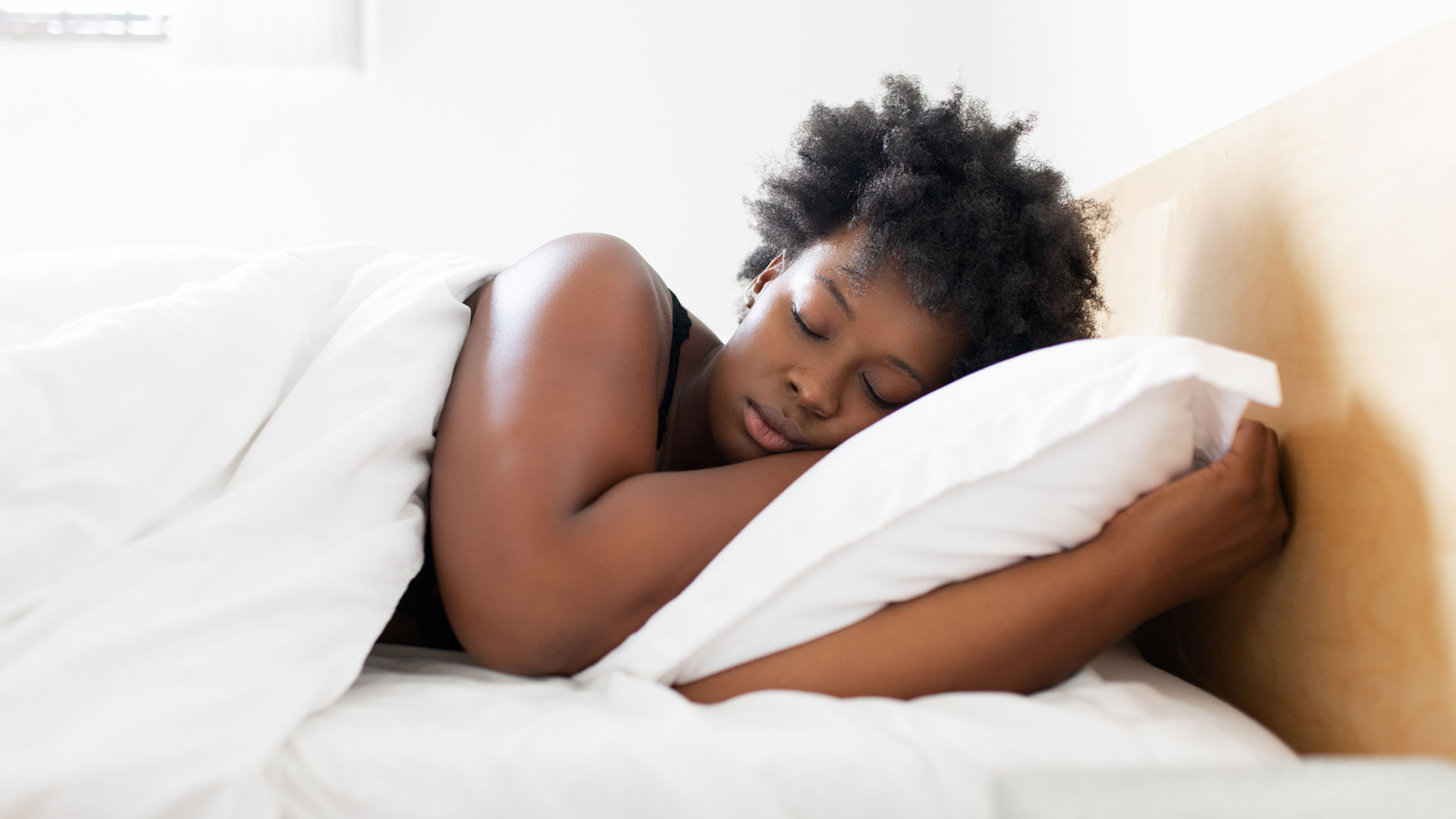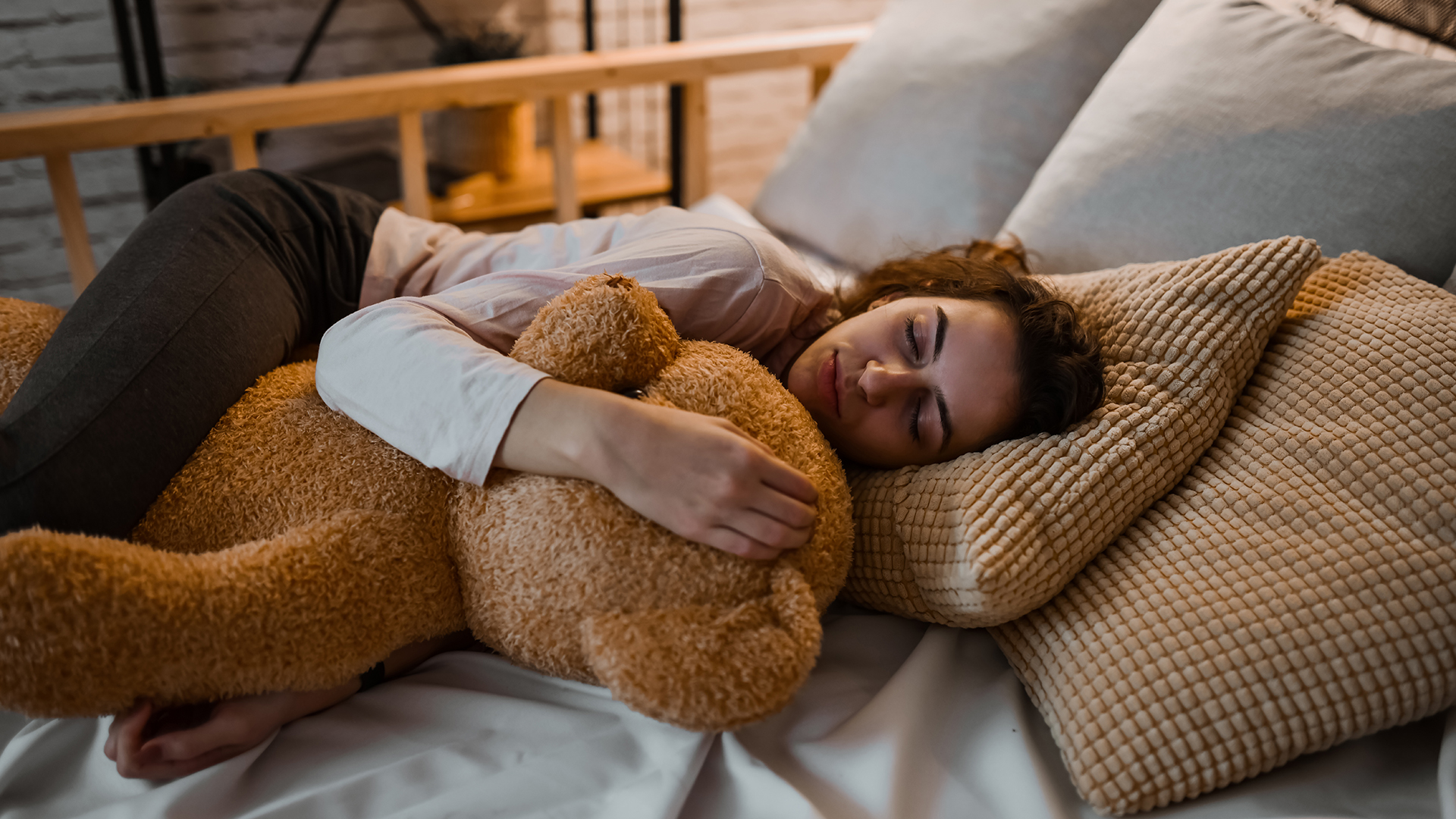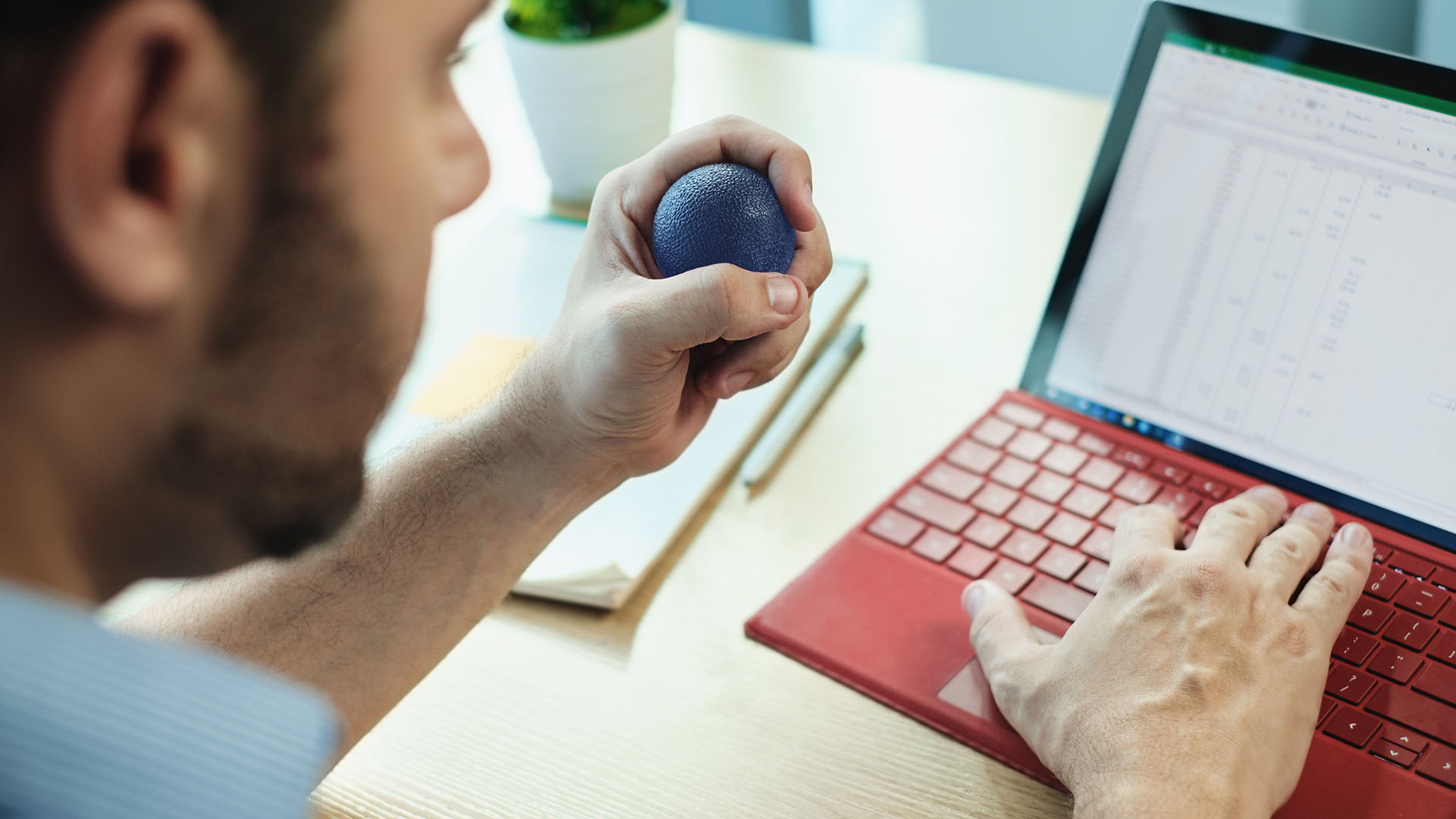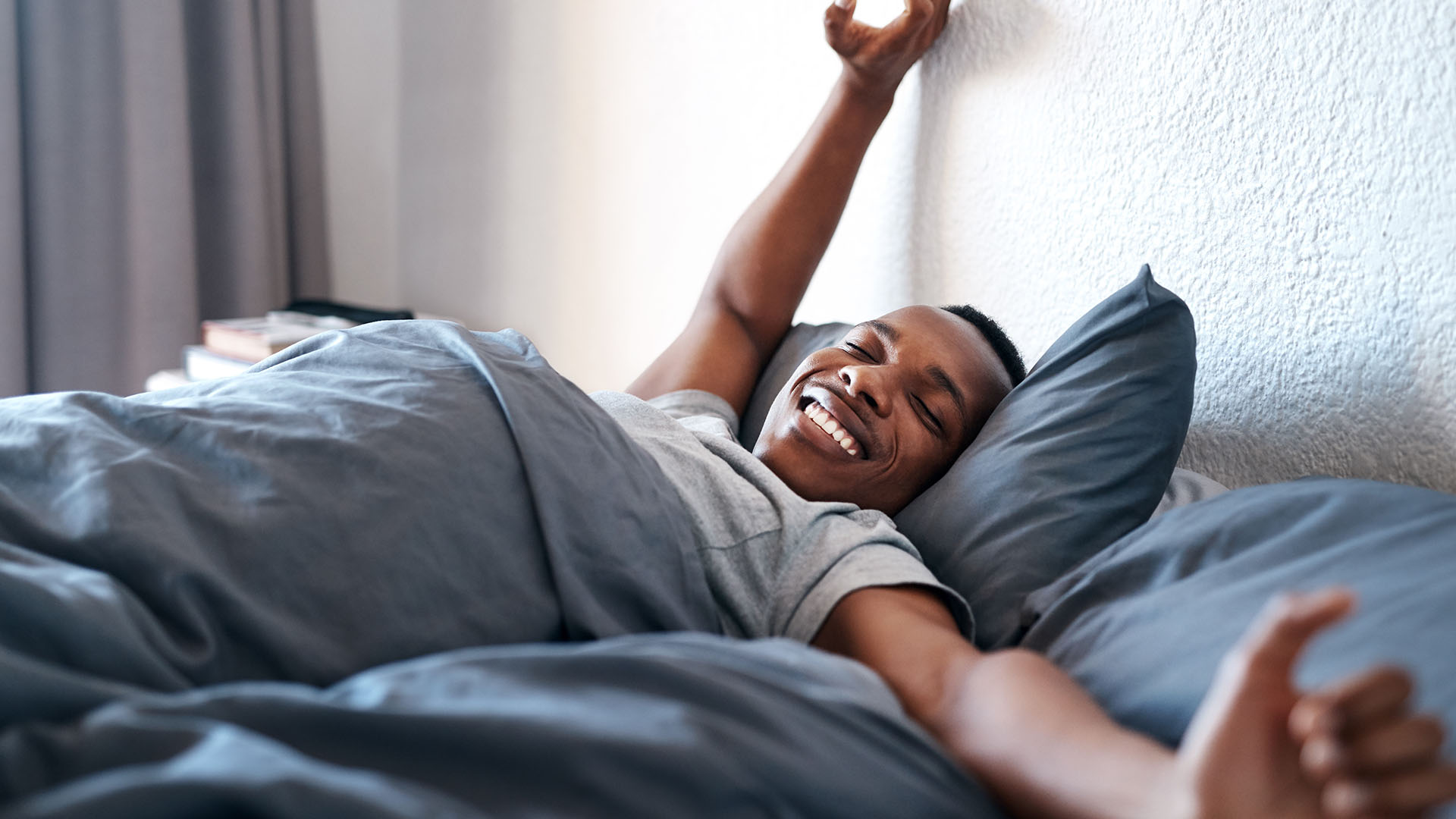'Like a stress ball for your body': expert explains how weighted pillows can help you sleep
Is it time to trade your weighted blanket for a weighted pillow?

Sign up for breaking news, reviews, opinion, top tech deals, and more.
You are now subscribed
Your newsletter sign-up was successful
Weighted pillows provide an answer to an important question: what if you could hug your way to sleep? By combining deep pressure stimulation (DPS) and the distracting effects of a stress ball, weighted pillows can help ease stress for a quieter mind and that contented feeling we get when we're happily resting. But how exactly does any of this work?
Deep pressure stimulation and stress balls both play on your sense of touch to create a content, grounding sensation. I spoke to Mikey Goldman, sleep expert and CEO of weighted pillow company Quiet Mind, to discover exactly what DPS is, and how it translates to a pillow.
Quick note before we start: while a weighted pillow can help you drift off peacefully, it's not meant to go under your head. So to make sure you have a truly dreamy sleep, check out our guide to the best mattresses and best pillows.
What is deep pressure therapy?
Weighted pillows use something known as deep pressure therapy (DPT), or deep pressure stimulation (DPS), to help you feel relaxed and calm. It works through tactile gestures – such as firm hugs and squeezes – which stimulate the proprioception sense, signaling to your brain that it’s time to release some positive hormones. The calming effect of DPT can potentially help you sleep when stressed.
Let’s dive in a little further. We’re all taught about the five senses (sight, sound, smell, taste, and touch). These senses receive stimulation from the outside world and interpret it by sending neurotransmitters to the brain, instructing it what to do.

But it turns out there are more than just five senses (like, a lot more – some scientists think there could be over 20). These less well-known senses include proprioception, the sense that helps us stay aware of where our body is and how it's moving.
Mikey explains that it's this sense that's stimulated when a weighted pillow presses against you. “When the weight/pressure is placed on your body, that pressure that pushes into your muscles sends neurotransmitters to your brain which tells your nervous system to increase the production of three key hormones; serotonin (mood boosting), dopamine (focus/alertness), and melatonin (sleep).”
As well as raising the level of feel-good hormones in your body, deep pressure stimulation can also lower the levels of less welcome hormones. “While these hormones are increasing from the DPS, your stress hormone (cortisol) is reduced,” says Mikey. “This is why DPS is a natural way to alter your mood and shift your nervous system from fight or flight to rest and digest."
Weighted pillows: a full-body stress ball
How do we go about utilizing deep pressure stimulation in everyday life? A big bear hug can be an easy way to activate the proprioception sense – and a cuddle can help you sleep – but it's not always the most convenient method. You need someone around who's free to engage in a five minute hug session, for a start.
Sign up for breaking news, reviews, opinion, top tech deals, and more.
This is where the weighted pillow comes in. Heavier than your usual cushions, weighted pillows press down on the body, engaging your sense of proprioception. This floods the body with feel-good hormones, helping soothe stress and anxiety.

Weighted pillows also work by using a distraction technique. Giving a weighted pillow a tight hug helps redirect stress into a physical outlet. Kinda like the foam smiley face you keep by your desk to squeeze during a particularly frustrating meeting.
“We call our weighted pillow 'a stress ball for your body' because it acts in a similar way to stress balls," Mikey explains about the Quiet Mind pillow. “Stress balls provide our nervous system with a way to get rid of stress, tension, and nervous energy using a squishy ball. By tapping into our senses (touch, proprioception) and constantly squeezing a stress ball, you create a soothing distraction that redirects your anxious feelings and helps you calm down."
Any time your thoughts start shooting off at 100 miles per hour, holding your weighted pillow can bring things back to a more manageable pace. "When your mind is quiet and still, you're able to reset and control your emotions and thoughts," says Mikey. "So if the hand has a stress ball, the body should have one as well.”
Weighted blanket or weighted pillow?
The best weighted blankets are a popular choice for creating a cozy and calming sleep setup. We've discussed before how you might choose the pressured comfort of a weighted blanket for anxiety, but how does the weighted pillow compare?
There's an obvious difference between the two: weighted pillows concentrate the weight in a small area, while weighted blankets spread the weight over a larger surface. You can hold a weighted pillow in your lap, but drape a weighted blanket around your shoulders.

Weighted pillows and weighted blankets both operate in similar ways, but they do have their unique advantages. Mikey claims the weighted pillow can provide the “perfect hug” which, honestly, sounds pretty fantastic. Weighted pillows are excellent if you like to have something to hold onto when you're feeling stressed, or love the feeling of a cat sitting on your lap.
Of course, the weighted blanket has its own pros. For a start, you can wrap it around yourself. This can provide more of a full-body hug than a pillow can, for those times when you just want to be spooned. And a weighted blanket also has the benefits of a non-weighted blanket, so you can use it in bed. While the weighted pillow is versatile, it isn’t really a replacement for a non-weighted pillow. And if you do tuck it under your head, you won’t be able to appreciate those weighted properties.
Really, what it comes down to is whether you prefer to be the big spoon or the little spoon. For the former, choose a weighted pillow. For the latter, a weighted blanket.

Ruth is TechRadar’s Sleep Writer. She’s here to help you find the perfect sleep setup for your budget and personal preferences. As well as keeping a keen eye on everything that’s going on in the world of mattresses, she regularly speaks to experts to help you learn how to improve your sleep habits, whether that’s by debunking sleep myths or explaining the science behind it all. Prior to joining the TechRadar team, she wrote features and product guides for new parents hoping to get a decent night's sleep, as well as writing for a variety of online spaces.